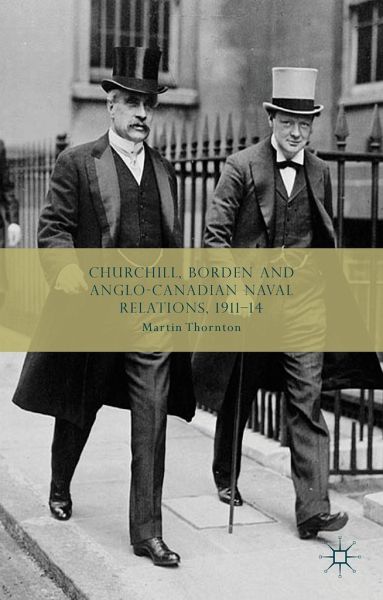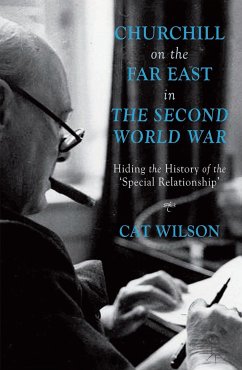
Churchill, Borden and Anglo-Canadian Naval Relations, 1911-14
Versandkostenfrei!
Versandfertig in 6-10 Tagen
38,99 €
inkl. MwSt.
Weitere Ausgaben:

PAYBACK Punkte
19 °P sammeln!
In 1911, Winston S. Churchill and Robert L. Borden became companions in an attempt to provide naval security for the British Empire as a naval crisis loomed with Germany. Their scheme for Canada to provide battleships for the Royal Navy as part of an Imperial squadron was rejected by the Senate with great implications for the future.














